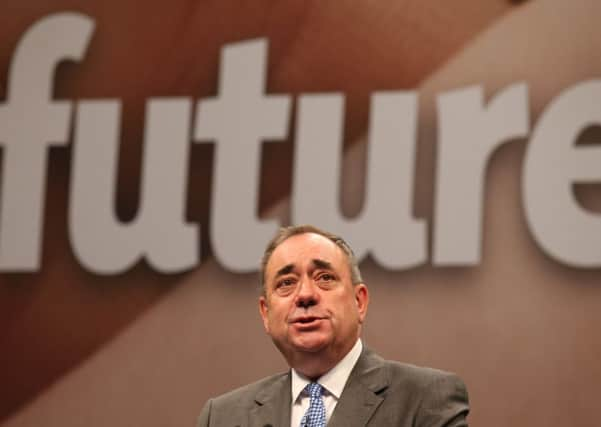Banks and retailers ramp up pressure on Scottish No campaigners


Clydesdale Bank followed Royal Bank of Scotland and Lloyds Banking Group in announcing contingency plans to shift its registered office to England.
It is almost certain that the Australian-owned lender would relocate to Leeds, the home of Yorkshire Bank, which operates as a trading name of Clydesdale.
Advertisement
Hide AdAdvertisement
Hide AdAlex Salmond, leader of the Scottish National Party, accused the Treasury of breaking City regulations by leaking “market sensitive” information to the BBC about the RBS move.
The bank is majority owned by the Government, which also has a minority stake in Lloyds.
Sir George Mathewson, a former chairman and chief executive of RBS, played down the significance of the banks’ announcements, insisting “there is no real jobs, revenues or investment impact”.
The location of a company’s registered office, its legal home, is what dictates its regulatory and tax regime.
Advertisement
Hide AdAdvertisement
Hide AdNational retailers stepped up the pressure on the Yes campaign yesterday.
Asda, the Leeds-based supermarket giant, warned of cost implications if Scotland votes in favour of independence.
Andy Clarke, chief executive, said the company would have to “reflect its cost” to operate north of the border after a Yes vote.
“If we were no longer to operate in one state with one market and - broadly - one set of rules, our business model would inevitably become more complex,” he said.
Advertisement
Hide AdAdvertisement
Hide AdHis remarks followed those of John Lewis Partnership chairman Sir Charlie Mayfield, who said shoppers would be likely to face higher prices post-independence.
He said John Lewis had no intention of reducing its commercial presence north of the border, where it has nine shops, a contact centre and employs more than 3,000 people.
But he cautioned firms are unlikely to continue sharing the burden of higher operating costs in Scotland across all UK customers in the event of the break up of the union.
Dalton Philips, chief executive of Bradford-based Morrisons, was more ambivalent about the potential impact of Scottish independence when questioned by The Yorkshire Post.
Advertisement
Hide AdAdvertisement
Hide Ad“Yes, it’s very expensive to distribute to Inverness and Aberdeen, but then again it’s very expensive to distribute to Penzance,” said Mr Philips, who added that land is cheaper in Scotland.
The No campaign gathered pace yesterday after leaders of more than 100 Scottish businesses described the UK as “the most successful union in industry”.
The business leaders cited uncertainty over issues such as currency, EU membership and increased costs as reasons for Scotland to remain part of the UK.
Meanwhile, promises to extend devolution to Scotland if it votes No to independence in next week’s referendum will only be “meaningful” if the Treasury is willing to hand over powers to borrow money, a new report warned.
Advertisement
Hide AdAdvertisement
Hide AdThe report by the National Institute for Economic and Social Research said that the power to borrow should be given not only to the devolved government in Edinburgh, but to Wales, Northern Ireland and the English regions as well.
Peter Box, chairman of the West Yorkshire Combined Authority, said cities across England are drawing up wishlists for devolved powers and spending.